The best free resources to learn about Docker and Containerisation in 2023.
Docker and the concept of containerisation it introduced have become an integral part of the software development and deployment process many of us will use today.
They have transformed the tech landscape, making it easier for developers to package their applications and dependencies into one neat, portable container.
But let's pause for a moment.
If you're new to this world, the jargon might seem a bit overwhelming.
Docker? Containerisation? What are these, and why should you care?
Before we take a look at the best resources to learn more deeply about how to use Docker, let’s have a quick overview.
What is Docker?
At its core, Docker is an open-source platform that enables developers to automate the deployment and scaling of applications inside lightweight, isolated environments called containers.
These containers encapsulate an application along with its dependencies, ensuring consistency and portability across different operating systems and infrastructures.
With Docker, you can say goodbye to the "it works on my machine" dilemma and embrace a standardised, reproducible approach to software development.
Why Docker and Containerisation?
To appreciate the significance of Docker, we need to explore the historical context and the factors that led to the emergence of containerisation technology.
Containerisation has its roots in the Linux operating system, where concepts like chroot and cgroups laid the foundation for isolating processes.
However, it was Docker that brought containerisation into the mainstream, offering a user-friendly interface and a comprehensive ecosystem.
This shift towards containerisation was driven by the need for efficient application packaging, simplified deployment processes, and the ability to scale applications seamlessly across diverse environments.
By abstracting applications from the underlying infrastructure, containerisation has transformed software development, making it more agile, flexible, and cost-effective.
The Benefits of Containerisation
Containerisation, as spearheaded by Docker, brings numerous benefits within software development, these include:
- Scalability: Docker enables effortless scaling of applications by packaging them into self-contained units that can run on any platform.
- Portability: Applications packaged in Docker containers work consistently across different environments, from developer laptops to production servers and the cloud.
- Simplified: Deployment Docker simplifies the deployment process, allowing developers to focus on software development rather than intricate infrastructure configurations.
- Enhanced Security and Reliability: Container isolation ensures that issues within one container do not affect others, providing improved security and reliability.
- Collaboration and Reproducibility: Docker facilitates collaboration by enabling consistent development environments throughout the software lifecycle, promoting reproducibility and streamlined teamwork.
Now that we’ve looked at the basics if you want to learn more about Docker and how to use it, I’ve found six great websites where you can get started learning for free:
#1 - Official Docker Documentation
Docker and the Docker community have created various resources for training and gaining hands-on experience with Docker and Kubernetes.
These resources include hosted labs, self-guided tutorials, books, a CLI cheat sheet, and self-paced online learning from Docker experts.
The Docker Documentation itself is a great resource to start with.
#2 - Docker Curriculum
Docker for Beginners, authored by Prakhar Srivastav by Docker Curriculum, offers a comprehensive guide to Docker, making it ideal for those interested to learn about Docker and cloud deployments.
The tutorial provides practical experience in building and deploying web applications on the cloud using Docker, with a particular focus on Amazon Web Services.
It includes deployments of a static website and two dynamic web applications on EC2, using Elastic Beanstalk and Elastic Container Service.
The tutorial is designed to be accessible and informative, even if you don’t have any prior experience in deployments.
#3 - TutorialsPoint
TutorialsPoint's Docker Tutorial provides an in-depth exploration of the Docker Container service.
It starts with the basics, including Docker installation and configuration, and gradually delves into more advanced topics like Networking and Registries.
The concluding sections focus on the developmental aspects of Docker, guiding readers on how to utilise Docker Containers in development environments.
The tutorial is intended for anyone interested in learning about Docker as a container service, given its growing influence in the development of new-generation applications.
#4 - Simplilearn
Simplilearn's Docker Tutorial offers valuable insights into the world of Docker.
The tutorial provides a comprehensive understanding of Docker containers, their benefits, and instructions on setting up a Docker environment and using Docker commands.
It covers everything from the advantages of Docker to its distinction from other virtual machines.
By following this tutorial, you’ll gain an understanding of how to install Docker and master various Docker technologies. It's an excellent resource for anyone looking to learn more about Docker's capabilities.
#5 - freeCodeCamp
The Docker Handbook by freeCodeCamp is a thorough guide suitable for users familiar with the Linux Terminal and JavaScript.
The guide starts with Docker's introduction and installation across various operating systems. It then unpacks Docker's core concepts, including containers, images, and Docker Registry, followed by an exploration of Docker's architecture.
The handbook provides detailed instructions on manipulating Docker containers and images. It also teaches how to optimise Docker images, build NGINIX from the source, and work with Alpine Linux. As well as guides on containerising JavaScript applications, performing multi-staged builds, and managing Docker Networks.
Towards the end, the guide looks at advanced topics like containerising multi-container JavaScript applications, working with named volumes, writing Dockerfiles, and using Docker Compose to manage and compose full-stack applications.
#6 - Microsoft Learn
Microsoft Learn offers several training tutorials to give you a comprehensive understanding of Docker, its usage, and its integration with various Azure services.
Here are some examples of what you can learn from Microsoft about Docker:
- Build a containerised web application with Docker: How to package a web application so that it can be deployed as a Docker image and run from an Azure Container Instance.
- Introduction to Docker containers: Learn about the components of Docker containers and how they support compute container implementations.
- Automate Docker container deployments with Azure Pipelines: Teaches you how to create Azure resources to support a Docker container web application and how to use YAML pipelines to build, publish, and deploy a Docker container.
- Deploy and run a containerised web app with Azure App Service: Learn how to build and store images using Azure Container Registry, and how to deploy a web application.
- Use a Docker container as a development environment with Visual Studio Code: Learn how to install and use the Visual Studio Code Dev Containers extension.
- Run Docker containers with Azure Container Instances: Learn how to run containers in Azure Container Instances.
Bonus - Youtube Tutorials
If you prefer watching videos, here are a few great channels from YouTube to learn more about Docker:
- Docker Tutorial for Beginners - by Programming With Mosh
- A Full DevOps Course on How to Run Applications in Containers - by freeCodeCamp
- Learn Docker in 7 Easy Steps - by Fireship
In conclusion, Docker and containerisation have revolutionised the world of software development and deployment, offering lots of benefits to developers and users and transforming the way applications are packaged, scaled, and deployed.
The ease of scaling applications across platforms, the consistent performance in diverse environments, simplified deployment processes, enhanced security and reliability, and the promotion of collaboration and reproducibility are just a few of the advantages that Docker and containerisation bring to modern software teams.
The list of free resources provided in this article will provide you with the knowledge and skills needed to get started using Docker.
Now go learn Docker and have a whale of a time!
From your fellow ever-growing dev,
Cherlock Code
💙 If you liked this article...
I publish a weekly newsletter to a community of ever-growing developers, seeking to improve programming skills and stay on a journey of continuous self-improvement. Focusing on tips for powering up your programming productivity 🚀.
Get more articles like this straight to your inbox.
And stay in touch on 🐦 @evergrowingdev


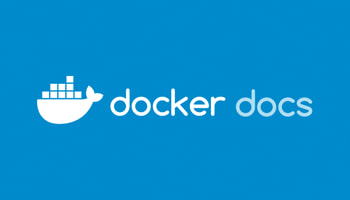
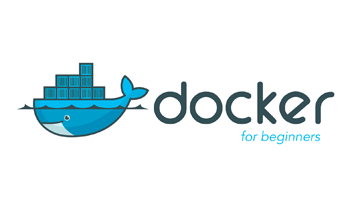

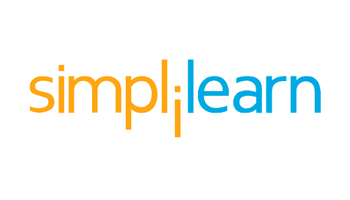
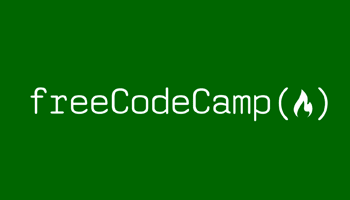
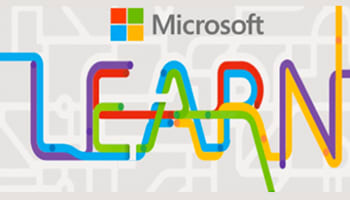

Top comments (0)